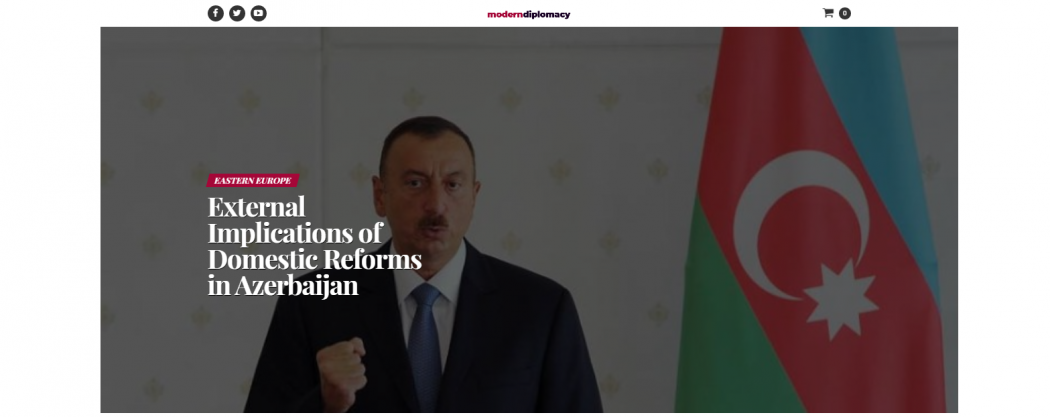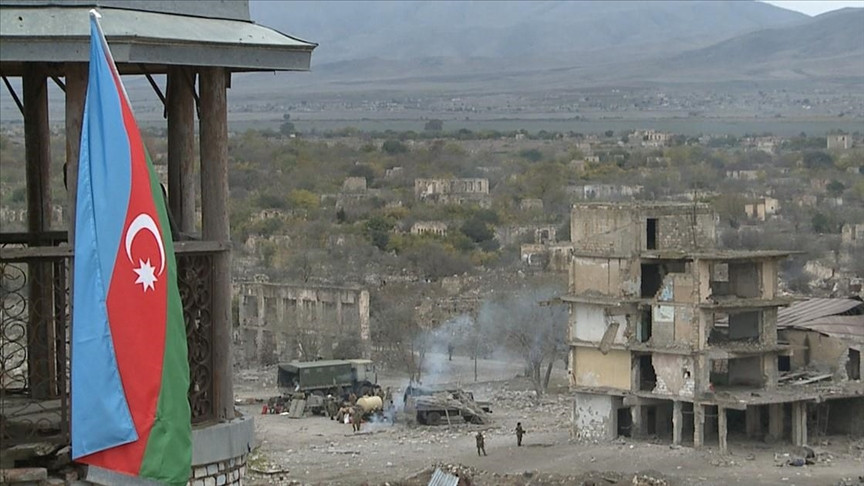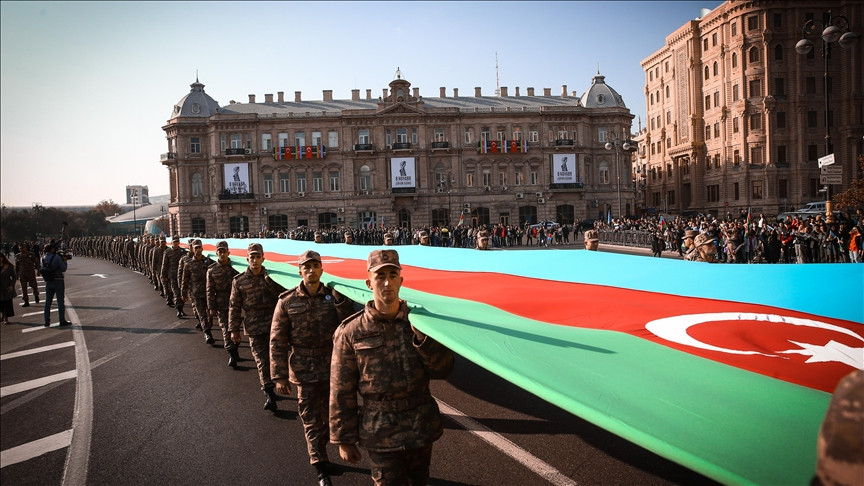The restructuring of the governance system, the appointment of Western-educated young professionals to the leading positions, and more decisive fight against corruption in energy-rich Azerbaijan promise a quicker betterment of the internal socio-political situation and allows the country to overcome the challenges posed by volatile energy prices in the global market. These developments in the South Caucasian country have, however, some implications for the wider region in general, for its immediate neighborhood in particular.
Azerbaijan’s political system has gone through a remarkably stable period since 1993 when Heydar Aliyev was elected the President of the then just two-years old republic in gravely troubled times for the country amidst the war with Armenia and tensed domestic situation. In a short period of time, President Aliyev managed to reach ceasefire with Armenia, quell separatist movement in the south, sign important contracts with Western oil companies, and navigate the country through troubled geopolitical waters. There have been few changes to the political system established at that time as it, supported by lucrative revenues from oil and gas exports, provided necessary conditions to implement the overall priorities of the country. As an American expert aptly observed, “There was simply enough money to keep almost everyone happy”.
The latest political and economic challenges the country confronted due to new realities in the international relations, however, revealed some shortcomings of this system and necessitated comprehensive reforms. Important to note that, this process had started even before the start of sharp fluctuations in oil prices since 2014. The optimization of the public services at an unprecedent pace exemplified by the establishment of the Azerbaijani Service and Assessment (ASAN) in 2012 strictly reduced the Soviet-style bureaucratic procedures marred by unbridled corruption. These measures were back then lauded by many international observers primarily for “eliminating the conditions that [were] conducive to corruption”.
The existence of strong centralized government has allowed the authorities to initiate and implement such amendments with immediate effect at all levels of the political establishment. The past year of 2019 marked the zenith of these changes in Azerbaijan. The replacement of the old cadres, some of whom held their positions at the highest posts in the government since 1990s,with younger and mostly Western-educated people, the dissolution of the unpopular parliament on the ground of its failure to catch up with the reform process and calling for snap parliamentary elections were some of the changes made in 2019. In the course of this process, in December, for the first time in the history of post-Soviet Azerbaijan, a regional executive head was arrested on charges of corruption and theft committed during his service.
The reforms have been, however, not confined to the political branch of the government. Over the last few years, the country has made immense efforts to diversify economy and reduce the dependency on oil and gas reserves that still supply major segment of national revenues. The government targets a quick development of the so-called non-oil sector which primarily includes tourism, agriculture, national industry, transport, logistics and communications. President Ilham Aliyev repeatedly highlighted in the recent year that the reforms would be expanded, and they are inevitable and irreversible.
The provision of the favorable business environment and independent judicial system has been on the top of the agenda. The achievements reached have also reflected in the Economic Freedom report by the Heritage Foundation where Azerbaijan’s ranking progressed from 91stto 60th in 2019. According to the report, Azerbaijan’s “overall score has increased…, led by a dramatic rise in judicial effectiveness and higher scores for property rights and government integrity that offset declines in labor freedom and fiscal health.”The new situation makes it possible for the country to recover from the economic shocks of 2015 when it went through devaluation twice in a year.
These developments in Azerbaijan have, however, some implications for the wider region in general, for the country’s immediate neighborhood in particular.
First and foremost, as the reforms promise that the country will maintain its leading role in the economic map of the South Caucasus, Azerbaijan will likely continue to have necessary financial resources to invest in large-scale transportation and economic projects. The new generation of technocrats, transparency in financial management, and fair judiciary are other factors that bode well for the future of Azerbaijan’s economy. This is highly important for the South Caucasus as most of the monumental projects in the region would have not been possible without the financial backing of Azerbaijan.
For example, the construction of the Baku-Tbilisi-Kars railway, which connects Azerbaijan with Georgia and Turkey and boosts the region’s appeal as a hub on the transportation route between Europe and China, has been financed solely by the Azerbaijani side. Likewise, the ongoing construction of a new Baku International Sea Trade Port (Alat), which targets to be the biggest multi-purpose port in the Caspian Sea, with a potential capacity to handle 25 million tons of cargo per year, will be completed thanks to economic recovery of the country.
In the meantime, Baku continued to expand its relations in the neighborhood with major partners like Turkey, Russia, Kazakhstan, Belarus and Ukraine, embarking in 2019 on ambitious transportation and energy projects, starting from China’s Belt and Road Initiative, and to launching TANAP gas pipeline on November 30, 2019, targeting the European market. These projects have a regional significance and are as hugely important for the economy of the participating countries from the region as for that of Azerbaijan.
The internal political and economic situation in Azerbaijan has also a very critical link with the regional security in the South Caucasus. The country’s multi-faceted relationship with its north-western neighbor, Georgia, has proved itself utmost important for the latter in the most troubled periods. Azerbaijan provided Georgia with crucial support in 2008 which helped its neighbor to overcome the challenges posed by sudden disruption of the trade with the country’s major partner Russia. Azerbaijan, with its oil and gas exports and investments, have often played an indispensable role for the Georgian economy. In 2019, Azerbaijanis ranked first in the number of foreigners visiting Georgia which provide an important contribution to its tourism revenues. The political stability and economic well-being in Azerbaijan aimed to be maintained by the recent reforms will boost the existing dynamics between the two countries which are vital for their national security in general.
The domestic reforms in Azerbaijan provides also a useful opportunity to revitalize the country’s relationship with its Western partners. The optimization of the public services, the rejuvenation of the government and the new political atmosphere built by the recent changes are all in line with the targets declared by the Eastern Partnership program of the EU and need to be supported. The new situation also promises a push for Azerbaijan’s relations with the United States as Svante Cornell, Director of the American Foreign Policy Council’s Central Asia-Caucasus Institute, suggested in October 2019: “The reform effort in Azerbaijan provides an opportunity for the U.S.-Azerbaijan political dialogue to be centered on positive cooperation, and thus to strengthen rather than weaken the bilateral strategic dialogue.”
https://moderndiplomacy.eu/2020/01/15/external-implications-of-domestic-reforms-in-azerbaijan








